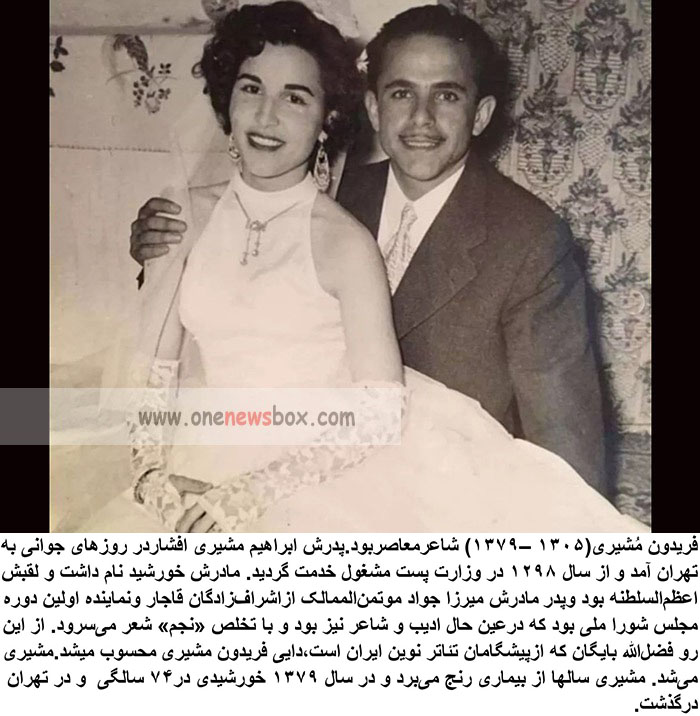Fereydoun Moshiri (September 20, 1926 – November 2, 1990) occupies a distinctive place in the history of Persian poetry. His works bridge the gap between classical tradition and the modernist currents of twentieth-century Iran. Known for his lyrical expression, his blending of romantic sensibilities with social consciousness, and his attention to both individual emotion and collective experience, Moshiri represents a generation of poets who redefined the role of poetry in modern Iran. Unlike some contemporaries who gravitated exclusively toward either the classical or the modern, he balanced both worlds. His poetry speaks of love, nature, hope, and humanity, while at the same time reflecting the tensions of an era marked by political upheaval, cultural transformation, and rapid modernization.
This essay presents an extended study of Moshiri’s life and works, organized around his biography, education, professional and literary career, themes of poetry, style and language, cultural contributions, major works, and his lasting legacy in Iranian literary history.

